When I just got started in backpacking, I was carrying nearly 40 lbs and every step on the trail was painful. I’ve come a long way in the past five years! As I continue toward ultralightweight backpacking, I thought it’d be helpful to go over what makes a good backpacking weight and provide some tips to lighten your load.
Your backpack fully loaded (including food and water) should not weigh more than 20% of your body weight. However, to protect your joints and improve comfort, it’s better to carry 10-15% of your body weight. Excluding food and water, that means a good backpacking base weight is between 10 to 20 lbs for most people.
But that’s not the whole story. In this post, I’ll go over:
- Lightweight vs Ultralightweight Backpacking
- How to Determine a Good Backpacking Base Weight for You
- Tips for Lightening Your Load
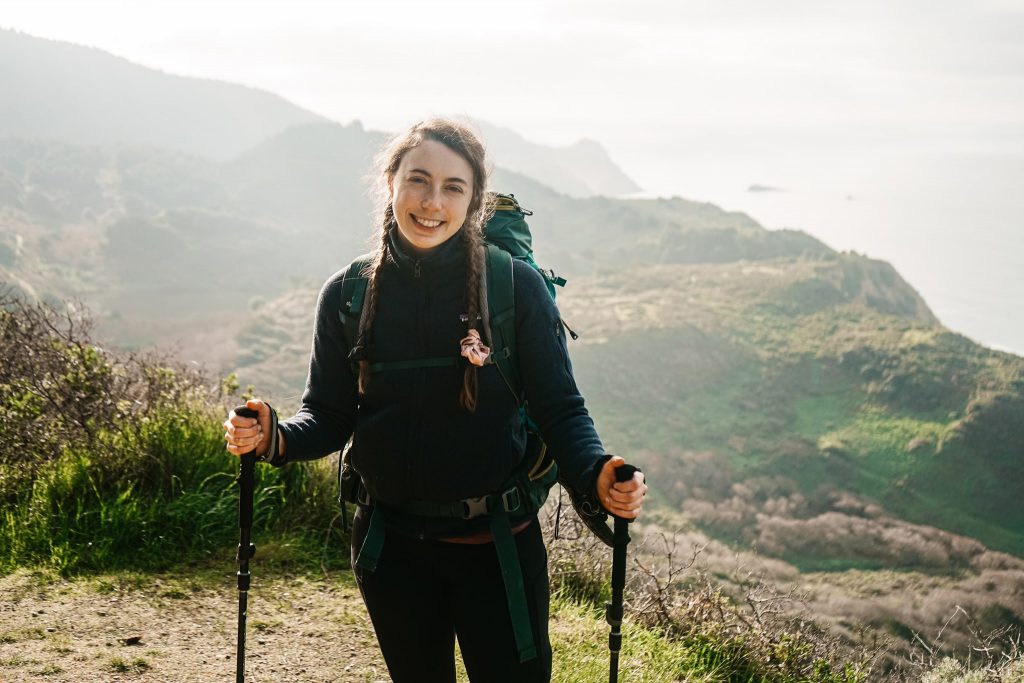
This post may contain affiliate links. If you make a purchase through one of these links, I may receive a small commission at no extra cost to you. Your support is much appreciated! You can learn more by reading my full disclosure.
Standard vs Lightweight vs Ultralightweight Backpacking
What is considered a standard backpacking base weight?
Conventional wisdom has placed the ‘standard’ backpacking base weight between 20 and 30 lbs.
Many backpackers, when they are starting off, will have backpacks closer to the 25/30 lbs range. There’s two reason this is the typical weight for early backpackers.
First, when you’re starting, you don’t usually have lightweight gear. When I was starting, I was using my canoeing gear (which can be much heavier since you aren’t carrying it). My tent on it’s own weighed more than 4 lbs!
Second, you don’t yet know what exactly you need to pack for a lightweight, yet comfortable, backpacking experience. So you over pack. On those first few trips, this was the primary reason my backpack weighed so much. I brought too many clothes and too much kitchen gear and so much miscellaneous crap.
(Also, I wasn’t yet in the habit of dehydrating food nor did I know how much food my body needed for backpacking. I seriously overpacked on food!)
Most people don’t stay at the standard backpacking base weight. They quickly realize carrying 30 lbs over terrain can be brutal! So they upgrade their gear, refine they’re packing list and migrate to lightweight backpacking.
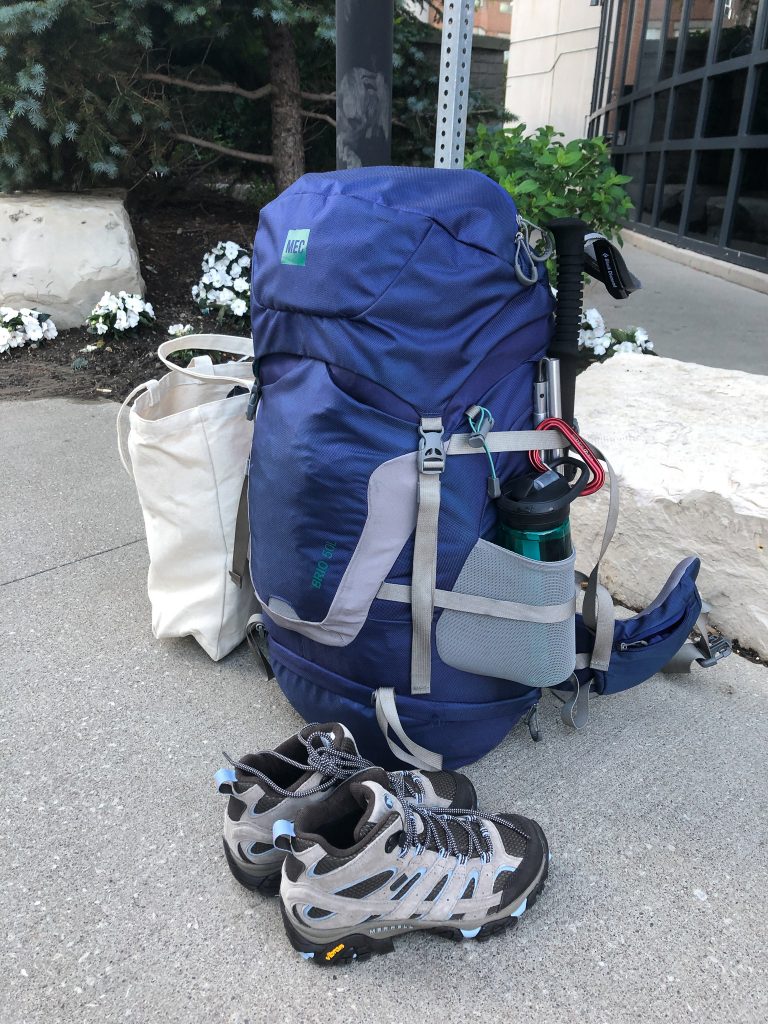
What is considered a lightweight backpacking base weight?
Lightweight backpacking is defined by a having base weight between 10 and 20 lbs. The majority of backpackers fall into the heavier side of this category (18-20 lbs).
You can achieve a lightweight base weight without highly expensive, lightweight gear if you’re mindful about the number of items you’re packing.
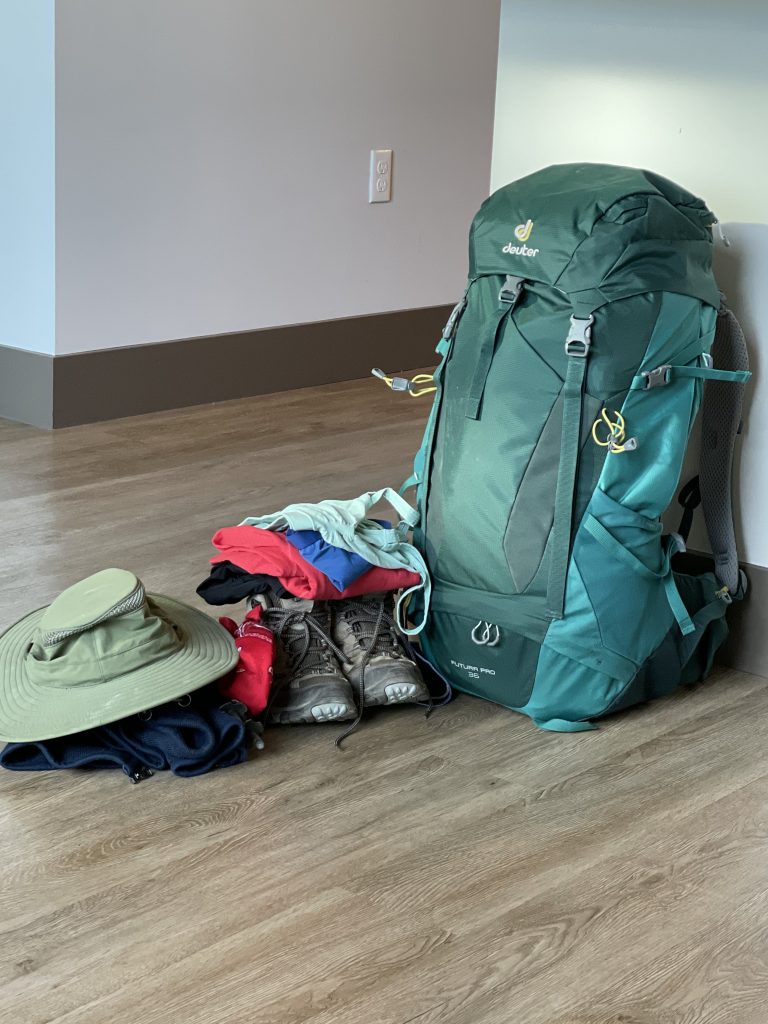
What is considered an ultralightweight backpacking base weight?
Ultralightweight backpacking is defined by a base weight under 10 lbs. To achieve a base weight this light, ultralightweight backpackers must make significant tradeoffs between weight and comfort. They also typically require ultralightweight gear that can be quite expensive.
Even if you assume that of your big four items (backpack, sleeping bag, sleeping pad, shelter) each weigh only 1.25 lbs (which would be impressive and expensive), that only leaves 5 lbs for literally everything else you need to carry.
That’s not to say ultralightweight backpacking is impossible, just that it takes a combination of lightweight gear and some tradeoffs.
How to Determine a Good Backpacking Base Weight for You
Let’s go into more detail about what makes a good backpacking weight. To illustrate how base weight can differ by circumstance and evolve over time, I’ll go over three examples:
- A ‘Good’ Backpacking Base Weight for Me
- A ‘Better’ Backpacking Base Weight for Me
- What I’m Actually Doing
Hopefully this will give you a framework for how to think about your own backpacking.
Example: Calculating a ‘Good’ Backpacking Weight for Me
As I said above, the generally accepted upper limit for a backpacking load is 20% of your body weight. For someone like me – I weigh 135 lbs – that means I shouldn’t carry more than 27 lbs.
At any given moment, I’m usually carrying a little under 2 liters of water on me (that equals 4 lbs for water).
The average backpacker also carries about 2 lbs of food per day, per person. When I started backpacking, this is on par with what I packed. That means for a three day backpacking trip (a typical length for me), I’ll have 6 lbs of food to carry.
Subtract 4 lbs for water and 6 lbs for food from my maximum fully loaded weight of 27 lbs, and you’re left with my maximum base weight of 17 lbs. That would put me in the “lightweight backpacker” category.
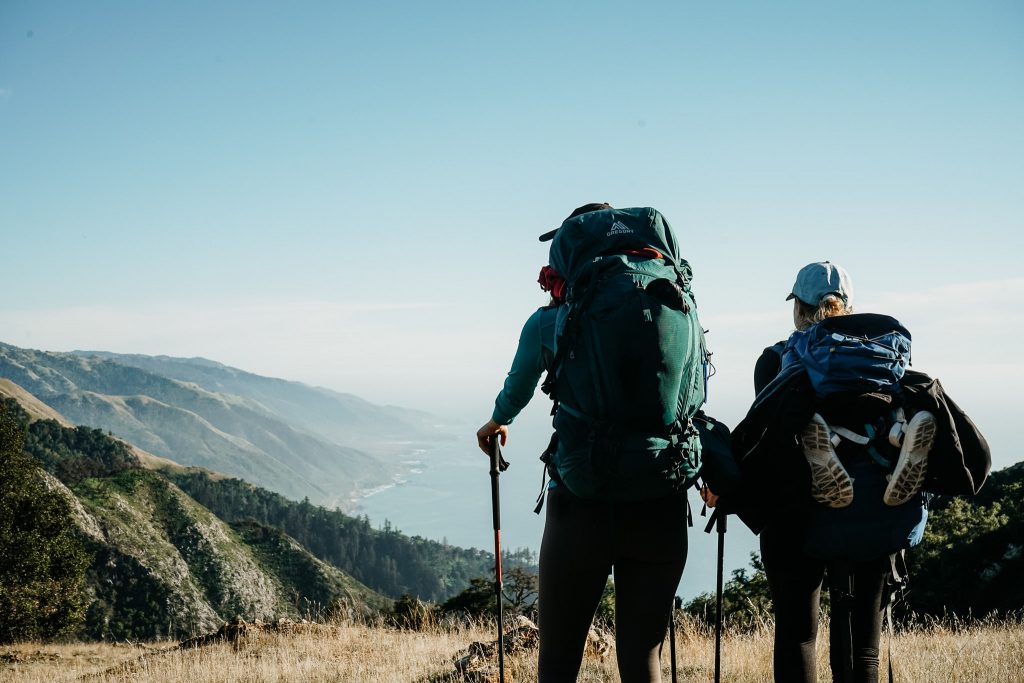
Example: Calculating a ‘Better’ Backpacking Weight for Me
However, I have bad knees. I don’t want to carry a full 20% of my bodyweight unless I’m at the beginning of a long trip and can eat my way down to a lower base weight. So for my typical 3 day trip, I am striving to carry 12% of my body weight.
In order to carry 12% of my body weight, I need my fully loaded backpack to weigh less than 16.2 lbs.
Depending on the trail’s water access, I could try to carry just 1 L of water (2.2 lbs). And I now pack dehydrated food almost exclusively, so my food weighs closer to 1.5 lbs per day (for a three day trip, that’s 4.5 lbs of food).
All this would leave me with a maximum base weight of 9.5 lbs. That would put me in the “ultralightweight backpacker” category.
Example: What I’m Actually Doing
A base weight of 9.5 lbs is not feasible for me right now. In reality, my current base weight is 14 lbs. With 4 lbs of water and 4.5 lbs of food, that gives me a total backpacking weight of 22.5 lbs (or 16% of my bodyweight).
While not perfect, it is an incredible improvement from the 30-40 lbs I used to carry! (Further in this post, I have some tips to help you get your pack weight down.)
My heaviest items are my tent, sleeping bag and the backpack itself. I’m exploring some new ultralightweight gear to get this down to 11.5 lbs (or maybe even 10 lbs!). But that gear is expensive so I haven’t made the investment.
Plus, there are some trade-offs don’t want to make.
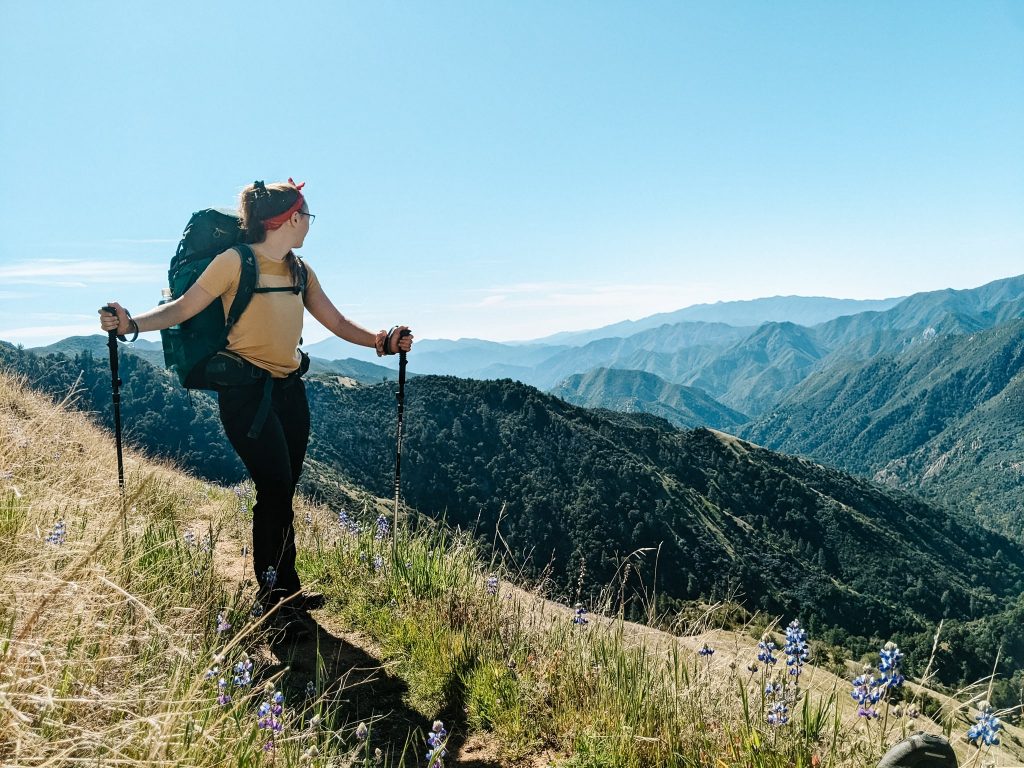
Lighter Isn’t Always Better
In order to achieve my current base weight without buying any ultralightweight gear, I’ve had to make some comfort sacrifices (most notably, I usually don’t bring campsite sandals, heavy food or any extra clothing).
True ultralight backpackers take sacrifice even further. They often skip the tent and use a bivy sack instead (they look like nylon coffins to me). Some will ditch the stove and only eat cold food during their trip (cold coffee? no thank you).
You don’t have to strive for an ultralightweight base weight. You can choose to be more comfortable!
If attempting to carry an ultralight pack makes you uncomfortable at the campsite and negatively impacts your experience, carry a little extra.
But if carrying more gear makes you uncomfortable on the trail, you should try to lighten your load.
A good backpacking weight is the lightest you can carry while still enjoying yourself on the trail and at the campsite.
Besides comfort, there are a ton of factors that affect what you can (and want to) reasonably carry.
For example, your size and body composition will play a role. If you’re small but very muscular, you might have an easier time carrying 20% (or a little more) of your body weight. If you’re tall but not very strong, you may want to stick to a lighter pack for now.
The trick is to progressively experiment with what you pack until you find the perfect set up for you.
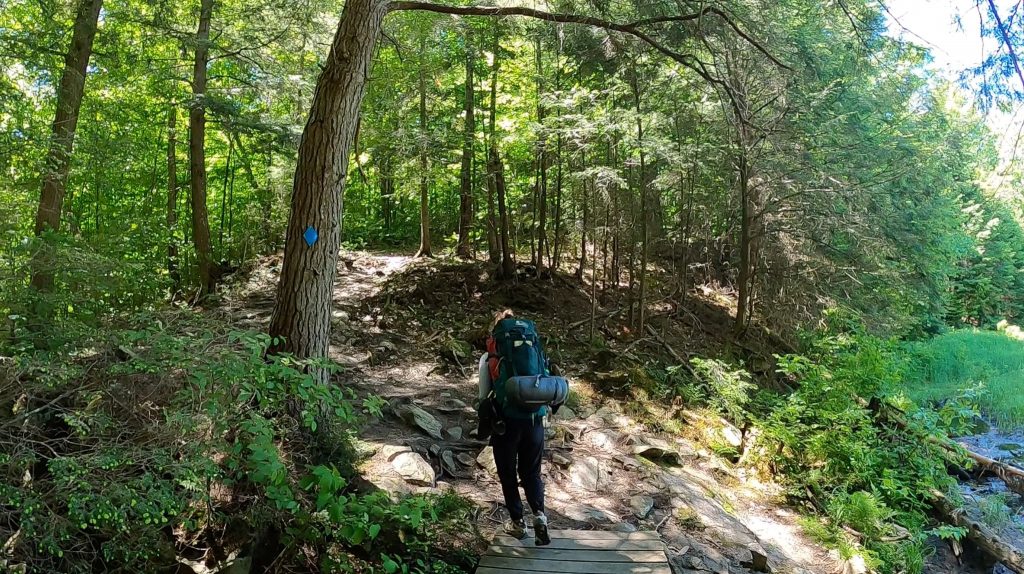
How to Lighten Your Backpacking Load
Evaluate Your ‘Big Three’
Your ‘Big Three’ are the three items that tend to be the heaviest items in your pack: backpack, tent, and sleeping bag. (Some people refer to the ‘sleep system’ and combine the sleeping bag and sleeping pad in the Big Three).
If you’re looking to cut down on your backpacking weight, these items are a great place to start. A budget backpacking tent (like the Marmot Catalyst 2P) typically weighs around 5 lbs. Whereas a lightweight backpacking tent (like the MSR Hubba Hubba 2P) is usually closer to 1.5 – 2 lbs. That means you can drop 3 or more lbs by upgrading just one item, without changing your comfort level at the campsite.
Likewise, there can be a lot of variability in the weight of sleeping bags. Most three season sleeping bags will weigh between 3 and 4 lbs. If you primarily camp in the summer, you could try a summer quilt which weighs closer to 1.5 lbs and still provides sufficient warmth.
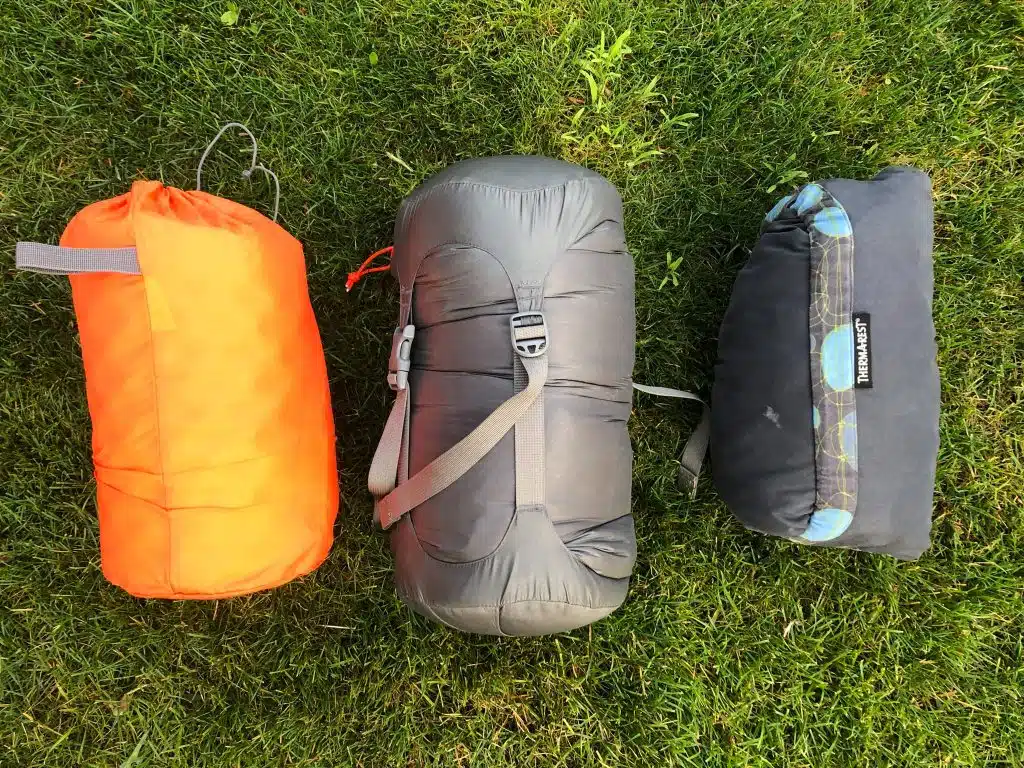
Pack the Heaviest Items Near Your Core
REI has a great post and video on how to pack a backpack to make your pack feel lighter. Here is a quick overview:
- Bottom: Bulky items you won’t need until camp (this is where I keep my sleeping bag, sleeping pag and miscellaneous clothing)
- Core: Heaviest items (i.e., tent, stove and bear vault with food)
- Top: Bulky items you want quick access to (i.e., first aid kit, water filter, lunch, sweater)
- Stash pockets: Small items you access often or may need quickly (water bottle, snacks, sat phone)
Don’t feel confined to those suggestions though. How you pack your backpack depends on your backpack shape and specific gear. For example, the core part of my new backpack is too narrow for a bear vault so now that has to go at the very bottom of my pack.
Back your backpack so there are no empty gaps in the middle and it’s even on both sides.
Repackage (or Ditch) Toiletries
Only bring the toiletries you’ll actually need. I bring a toothbrush, a travel-sized toothpaste and a travel-sized bottle of sunscreen. And that’s it.
If you want to achieve a good backpack weight (and avoid attracting animals), don’t bring creams or washes or make up or deodorant. It’ll add weight without adding much benefit to you.
Bring Dehydrated and Dried Food
For meals, I try to bring as many dried and dehydrated foods as possible. A lot of the weight of food comes from water; dehydrating the food can bring down the weight substantially.
For breakfast, I like oatmeal or powdered eggs. These are easy to hydrate with water while being filling and nutritious. For snacks, I don’t bring raw fruit – instead, I slice apples or empty a can of sliced pineapple and dehydrate them in the oven prior to the trip.
For cold lunches, I like wraps because they’re easy to pack and light. I’ll rehydrate some hummus or bring some peanut butter for the wraps.
For hot lunches or dinner, I’ll either bring a packaged backpacking meal or I’ll bring a chili / pasta I’ve dehydrated at home.
I do bring dark chocolate, energy bars and nuts, which can be a little bulky. However, I bring a small amount and choose the most calorically dense options.


Get Lighter Water Bottles
Even empty, a Nalgene or stainless steel water bottle is surprisingly heavy. To lighten your backpack, switch to a lighter water bottle or a hydration bladder.
For backpacking trips, I now bring two 1 L Smart water bottles. Although these water bottles are technically single use, the plastic is durable enough that I’ve been using the same two bottles for six months and they are still in great condition. Just don’t put them in the dishwasher or leave them in direct sunlight.
Bring Water Purification Tablets
This may be a controversial take, but I love water purification tablets for cleaning river / lake water. They are significantly smaller and lighter than any water pump / filter I’ve ever seen and they do just as good a job. Some people think there is an after taste, but I’ve never noticed. I use Aqua-tabs since they only take 30 minutes to purify 1 L of water.
Limit Your Cook Wear
I used to carry a stove, pot and bowl on backpacking trips. Even with a small pot, it was still bulky and heavy.
I now have an integrated stove system and it is amazing! The entire stove (including the fuel) fit inside the pot on top and the cover (not shown) doubles as a bowl. It’s much lighter than my old system and I love it.
Besides the stove, bowl and a spork, I don’t bring any other cook ware on backpacking trips. I don’t even bring a coffee mug or pour over anymore (I bring instant coffee and drink it out of the bowl). Be mindful of what you actually need and leave the rest at home!
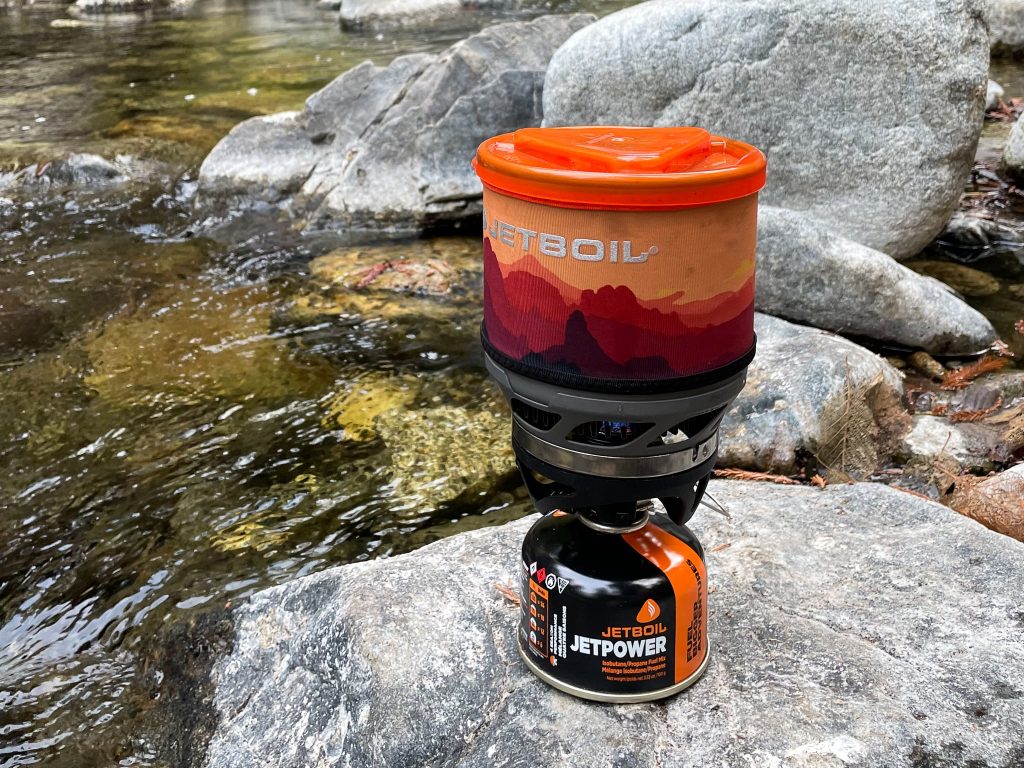
Don’t Bring Books
If you like reading, bring a Kindle. Books are heavy and add unnecessary pounds to your backpack. For guidebooks, photocopy the relevant pages before you leave and pack only the pages necessary.
Swap Your Rain Jacket for a Poncho
If you’re backpacking in an area that doesn’t get much (or any) rain, consider ditching your rain jacket for a lightweight poncho.
Since I started backpacking along the California coast, I haven’t had a drop of rain on a single backpacking trip. So I don’t bring my heavy Gore-Tex rain jacket on those trips. Instead, I have a small lightweight poncho that doubles as a tarp.
For backpacking in the mountains or rainforest, I still bring my rain jacket (even if the forecast doesn’t predict rain). Be prepared!
Do you have any other tips for lightening your backpacking base weight? Let me know!
Good Backpacking Base Weight – Final Thoughts
I hope this post has been helpful and you have a better understanding of what defines a good backpacking base weight.
To summarize, the best backpacking base weight is the lightest amount you can carry while still being reasonably comfortable both on the trail and the campsite.
I recommend striving for a base weight around 15 lbs, as this weight balances comfort on the trail and comfort at the campsite. But if you’d like to go even lighter, the packing tips above should help you get there!
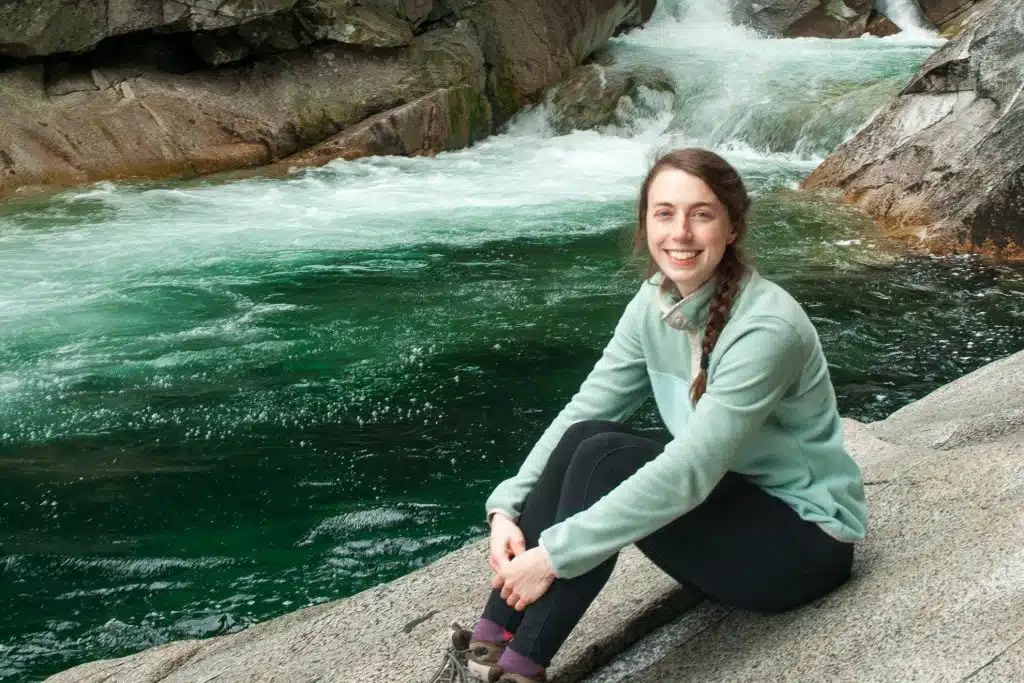

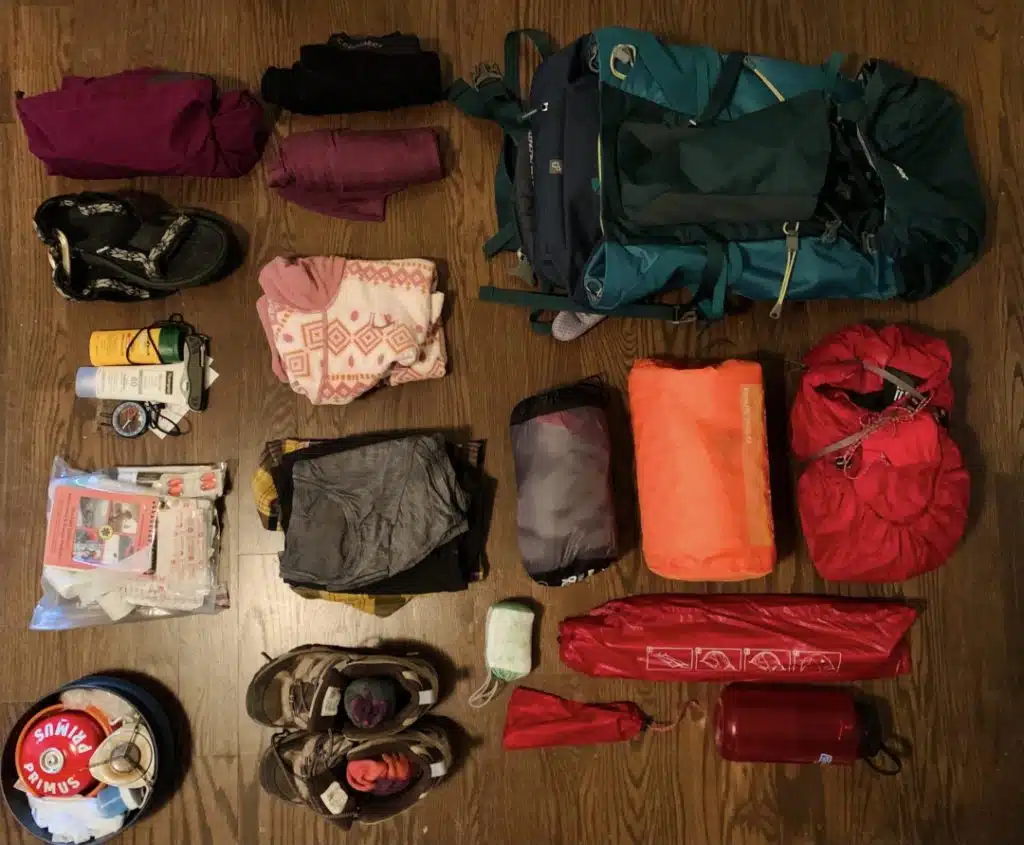
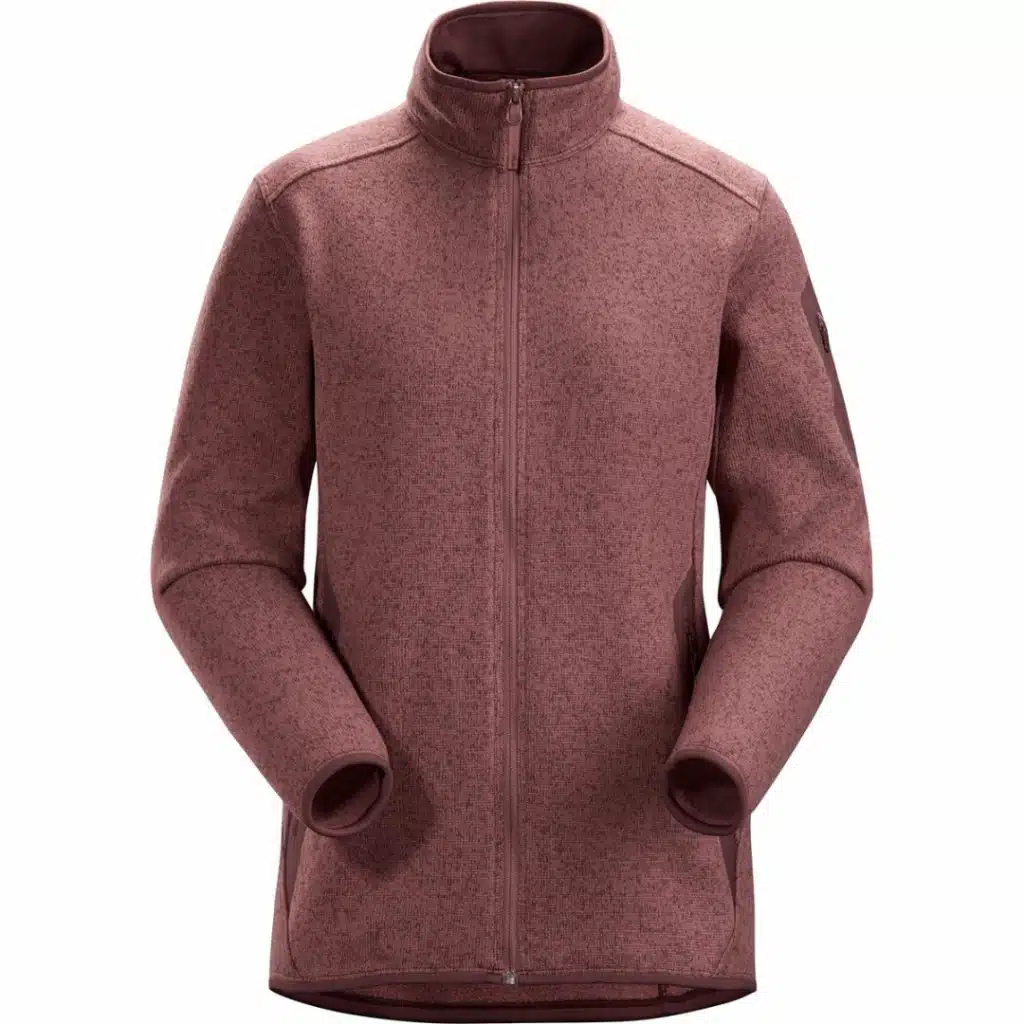
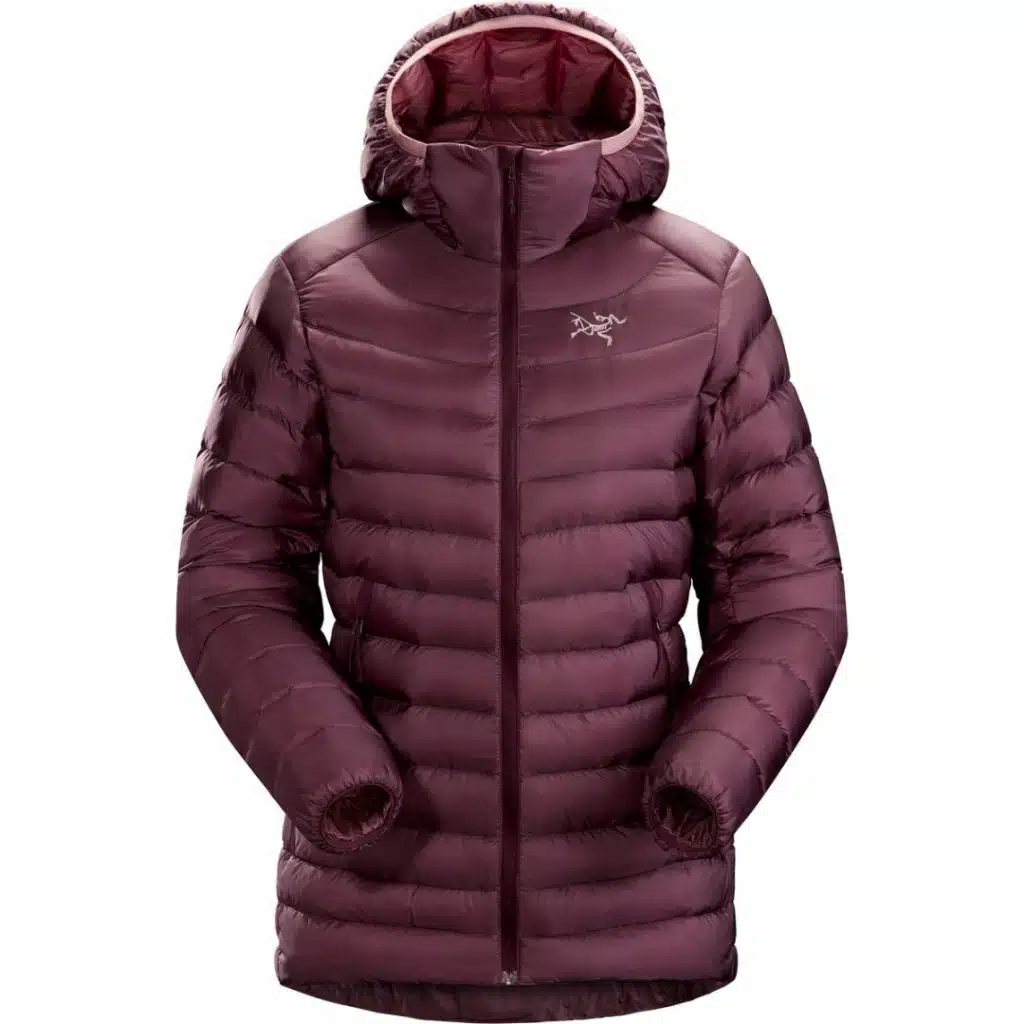
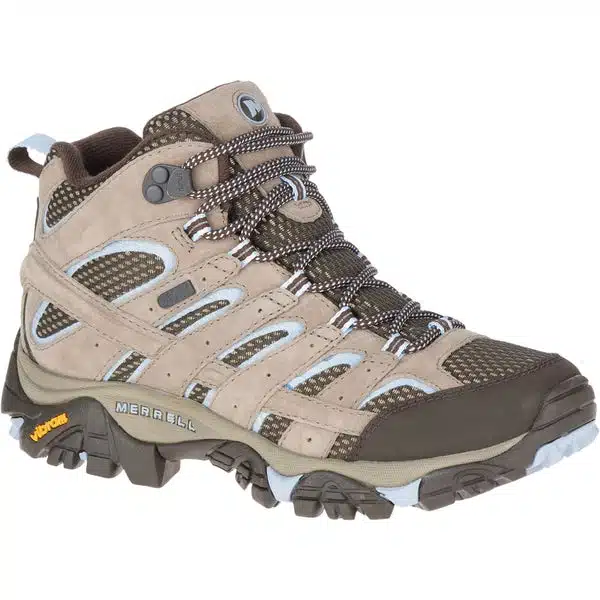
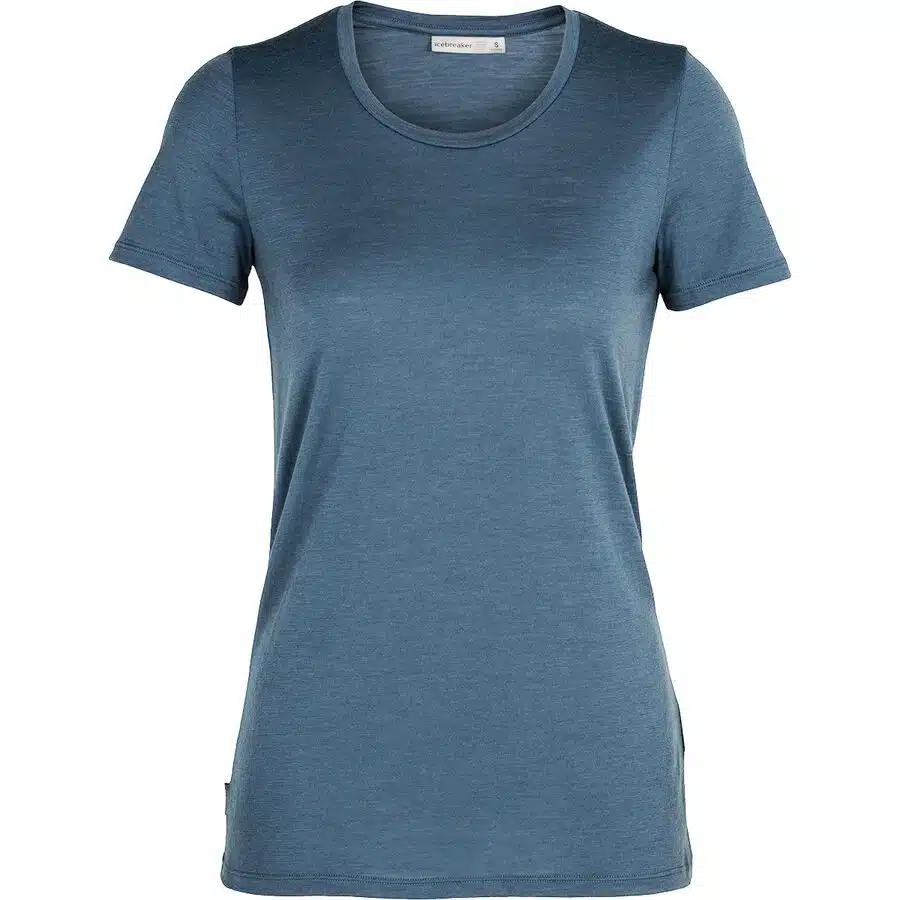
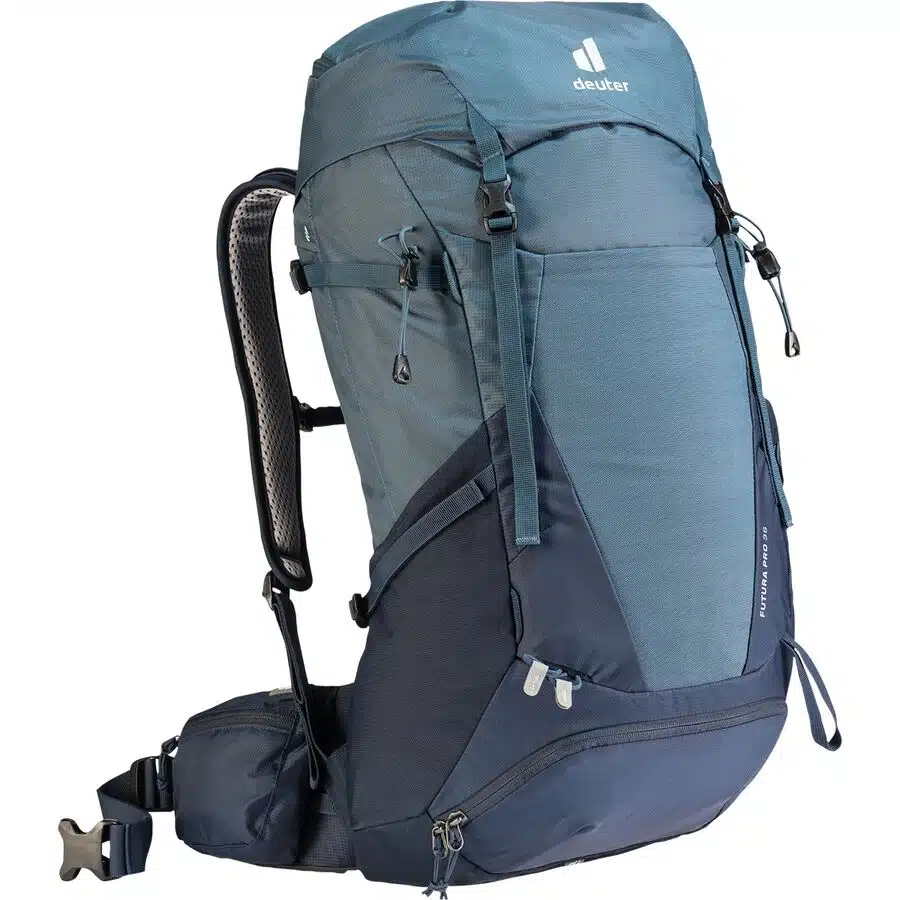
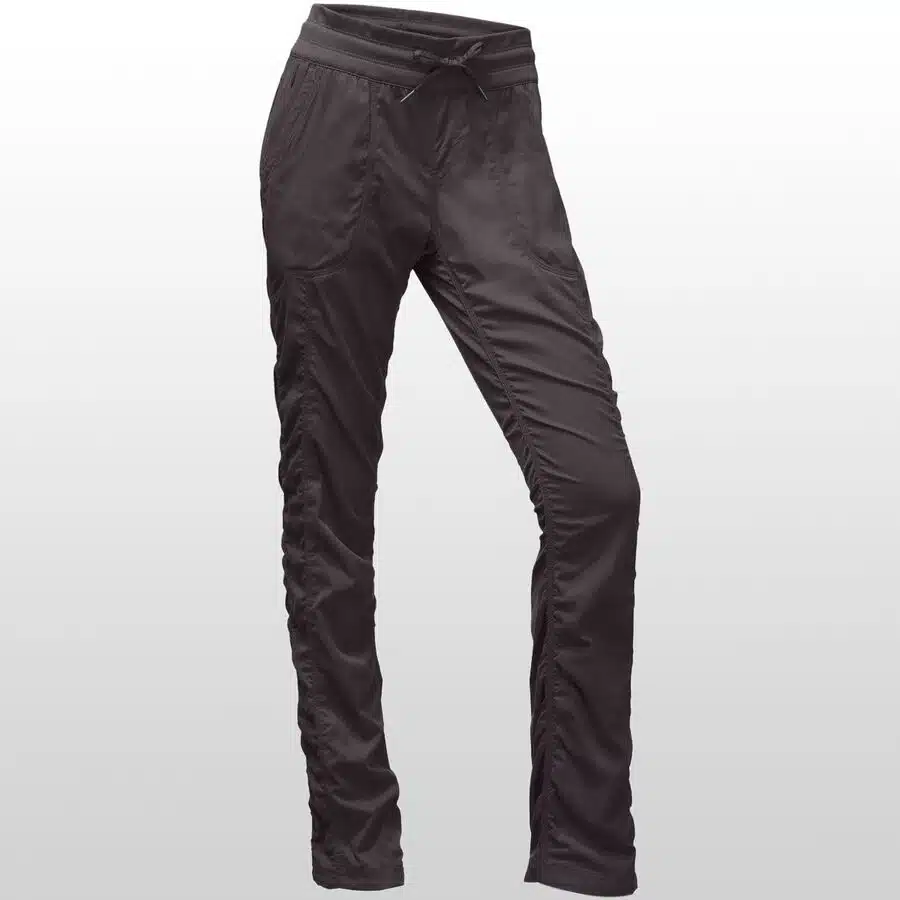
Stay in Touch
Join our community of outdoor adventurers - you'll find trip inspiration, gear discussions, route recommendations, new friends and more!
Thank you! Heading out on a 3 day solo trip and this helped me pare down my pack 🙂
You’re welcome, Susan! Have a great trip!!
I appreciated finding someone talking about this from the perspective of a female around my size! Helps me translate a lot of the recommendations I’ve been sorting through as I try to improve my setup.
I’m glad you found it helpful Cassandra! Have a good backpacking season this summer!
This is a great article!!
Thank Kristen!
Thanks for the “reality'” check. Great overview. I’m doing the SC Foothills trail next week. 1st time Backpacking.
You’re welcome! Glad you liked the post 🙂 Good luck on the Foothills – I hope you have a great time!
Been shaving ounces for longer than i care to remember (its sad really) Currently have a base weight of 6lb 1oz. Just a few notes, swap out the jetboil for a brs 3000t and toaks 550ml ul cook cup for an 11oz savings. Ditch the tent and grab a hammock, they offer more personalization while providing a decent weight savings. An example of this would be a ultra-lightweight tent weighs a pound, then you have to add a pad (another lb) then a sleeping bag (another lb) thats 3lb. My entire hammock setup (with topquilt and “underquilt”) weighs 2lb 5.9oz and sleeps so much better than any tent/pad combo ive ever used, and in nasty humid conditions i can even ditch the “uq” and shave off 4.75oz 🙂
Hmm good idea with the stove, thanks! Unfortunately I can’t do the hammock personally – I have an issue with my lower back and left hip and can’t tolerate anything except sleeping flat on my back (even my mattress at home is firm like the ground haha!). Though I have been considering a bivy sack. Even though they look like a coffin, they’re so much lighter than a tent!
Hi Way! Can you share what brand/style you have for your hammock, underquilt, and topquilt setup? Thanks:)
I have a comment/question about dehydrated food. I’m new, so I could be totally of the mark on this. So, I like the preservation aspect of dehydration. But as far as weight goes, isn’t water, water? If I have to carry water to rehydrate the food, how is that different than carrying the water in the food, lol? If I eat a cut up apple at regular hydration, that will be that much less water I need to drink. If I can acquire every drop of water I need as I need it, dehydration/rehydration makes sense. But if you need to carry two liters, why not carry some of it in the food? After all, unless you’re purifying water 2-3 times a day, you’re carrying the water either way.
Nevermind, I want thinking about carrying hydrated food for multiple days, lol. 🤦
You can scratch my last comment. I want thinking about carrying hydrated food for multiple days, lol.
I forgive you, Bill.